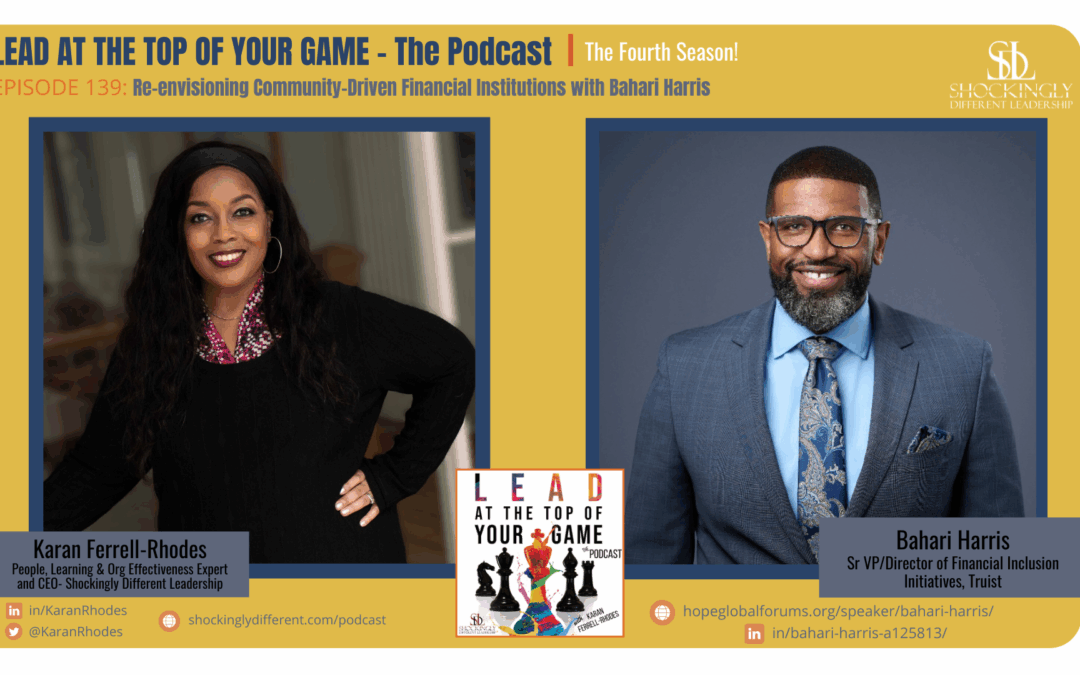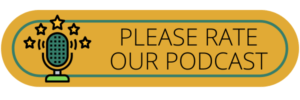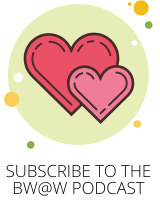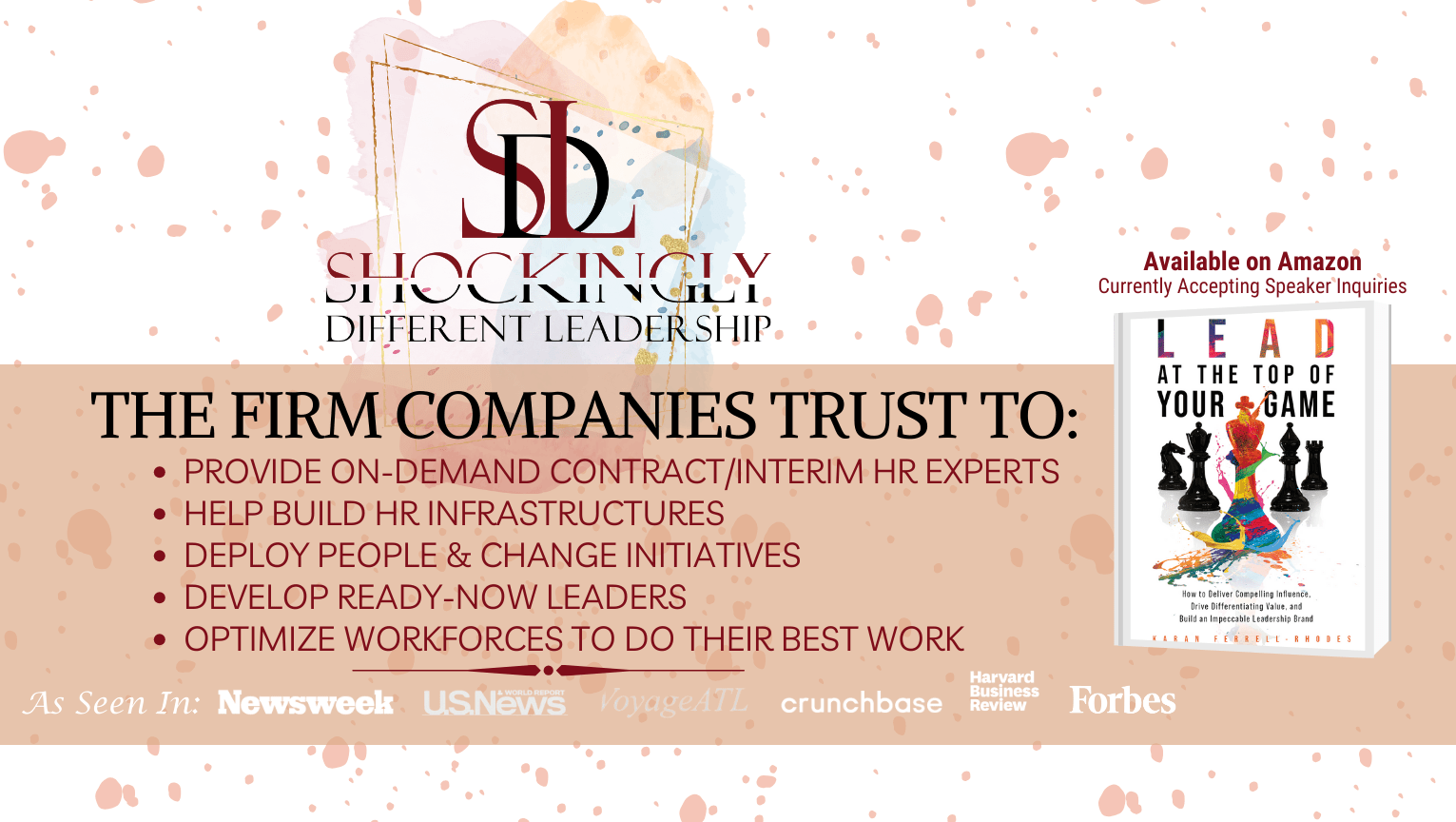IN THIS EPISODE, KARAN FERRELL-RHODES INTERVIEWS BAHARI HARRIS.
Bahari discusses his journey from founding Urban Hope to leading financial inclusion programs at Truist. Bahari discusses the importance of financial literacy and the Start, Save, Win initiative, which incentivized new savers to save $25 each, leading to over 25,000 new accounts and millions saved. He emphasizes the need to address the fear of the unknown and improve accessibility in banking. Harris also shares his personal finance hashtag #YourFinanceChamp to demystify financial services and encourages strategic decision-making in leadership.
Bahari Harris is the Senior Vice President and Director of Financial Inclusion Initiatives at Truist Financial Corporation, a leading bank holding company focused on financial inclusion and community impact. Through programs like workplace banking, student banking, and financial education initiatives, Truist aims to make banking more accessible and help individuals and communities achieve financial well-being.
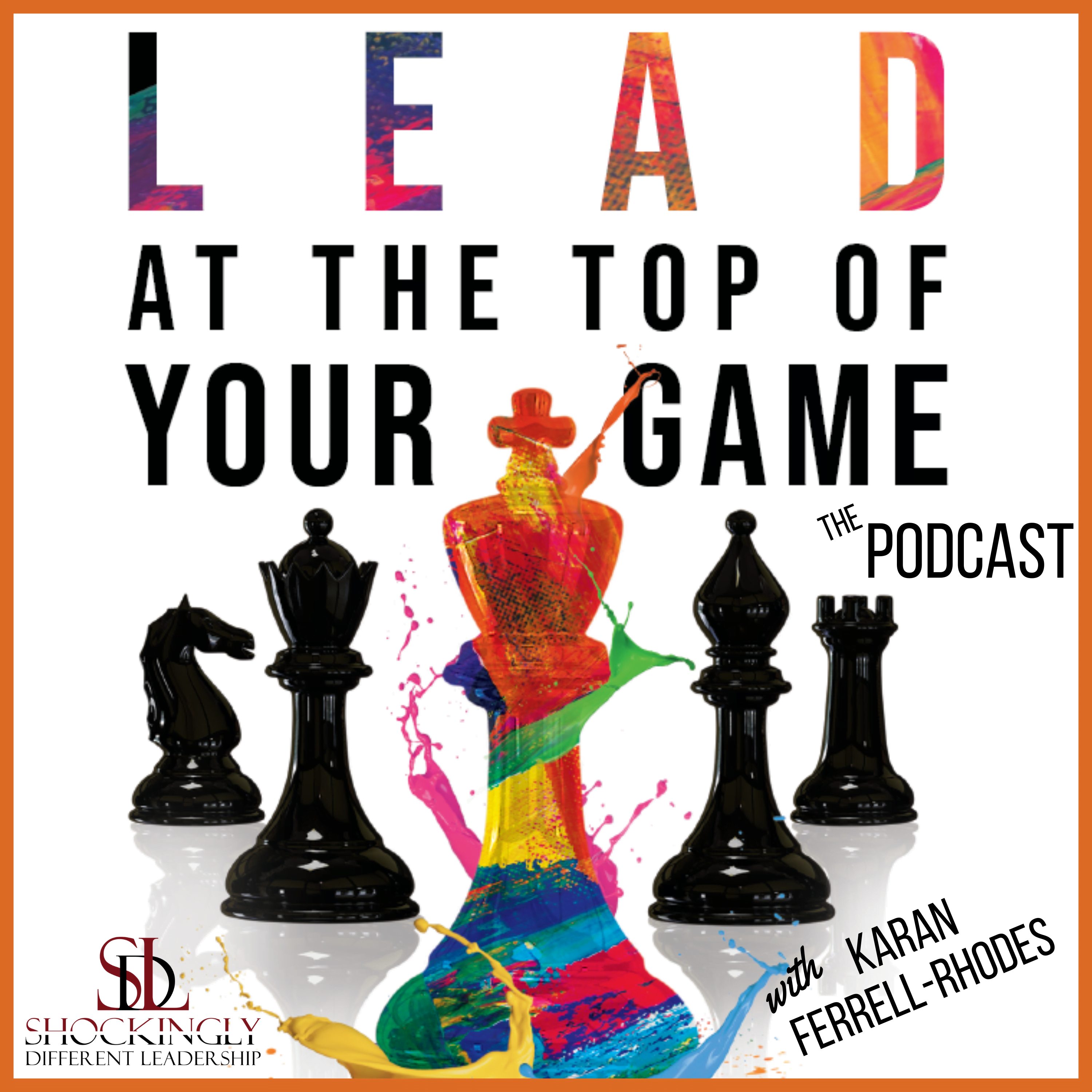
Posted by
SDL Media Team
Rather view our video podcast?

WHAT TO LISTEN FOR:
- Bahari’s journey from nonprofit leadership to his current role at Truist.
- How Truist is making banking more accessible and inclusive for underserved communities.
- The impact of financial literacy and why it matters for generational wealth.
- Examples of innovative programs like “Start, Save, Win” and workplace banking.
- Barriers to financial inclusion—what are the biggest challenges people face?
- Bahari’s leadership philosophy: meeting people where they are and motivating them forward.
- How can financial institutions build trust and loyalty in their communities?
- What practical steps can listeners take to improve their own financial well-being?
“The fear of the unknown is one of the barriers to financial literacy.”
FEATURED TIMESTAMPS:
[00:36] Introduction and Bahari’s role at Truist
[02:14] Personal background and interests outside of work.
[03:31] Bahari’s career journey from nonprofit work to banking
[07:06] Discussion on the importance of financial literacy and the challenges faced by underserved communities.
[10:53] Overview of Truist’s value-driven mission and the “Start, Save, Win” savings initiative.
[13:49] The importance of building savings habits and how behavior impacts financial security.
[15:32] Barriers to financial inclusion: fear of the unknown and accessibility.
[19:29] The unique, mission-driven approach of Truist and the value of purpose-driven leadership.
[21:07] Bahari’s “Your Finance Champ” social media initiative to demystify financial services.
[23:19] Signature Segment: Bahari’s entry into the LATTOYG Playbook: Leading side-by-side
[23:45] Bahari’s leadership philosophy: meeting people where they are and motivating them forward.
[27:10] Signature Segment: Bahari’s LATTOYG Tactic of Choice: Leading with Strategic decision-making
[32:18] The broader impact of Bahari’s work and the importance of opening doors for others.

ABOUT BAHARI HARRIS:
Bahari Harris is the Director of Financial Inclusion Initiatives at Truist Financial Corporation, where he leads programs such as Operation HOPE©, workplace banking, and student banking at Florida State University. With over 20 years of experience in financial services and nonprofit leadership, he has driven key initiatives like the Child Tax Credit Initiative and Start. Save. Win! at Truist, as well as the Community Heroes strategy. Prior to joining Truist, Bahari held multiple leadership roles at Bank of America, focusing on economic mobility for underserved communities.
A graduate of Virginia Tech and Duke University, where he earned dual master’s degrees in Business Administration and Public Policy, Bahari began his career as the founding executive director of Urban Hope, a nonprofit supporting urban youth. He lives in Charlotte, NC, with his wife, Mamie, enjoys global travel, speaks Spanish, serves as Board Chair of a local education nonprofit, and is an avid Latin dancer.
LINKS FOR BAHARI:
- Website: https://hopeglobalforums.org/speaker/bahari-harris/
- LinkedIn: https://www.linkedin.com/in/bahari-harris-a125813/
- Instagram: https://www.instagram.com/bahariharris/
- Facebook: https://www.facebook.com/p/Bahari-Harris-61577293637101/
ADDITIONAL RESOURCES FOR YOU:


Episode Sponsor
SDL is the go-to firm companies trust when needing to:
- supplement their in-house HR teams with contract or interim HR experts
- implement leadership development programs that demonstrate an immediate ROI and impact on the business

Episode 139 | Re-envisioning Community-Driven Financial Institutions with Bahari Harris
Bahari Harris 00:00
And I could not figure out, like, why are these check cashing places, you know, able to thrive, you know, basically across the street from these banks, right? Till I figured out that it was my families that were the primary customers of those, of those institutions,
Voiceover 00:03
Welcome to the “Lead at the Top of Your Game” podcast, where we equip you to more effectively lead your seat at any employer, business, or industry in which you choose to play. Each week, we help you sharpen your leadership acumen by cracking open the playbooks of dynamic leaders who are doing big things in their professional endeavors. And now, your host, leadership tactics, and organizational development expert, Karan Ferrell-Rhodes.
Karan Rhodes 00:36
Hello, my superstars. This is Karan, and welcome to another episode of the lead at the top of your game podcast. We have a tremendous guest on the show today, and I cannot wait to dive into some very rich conversation on a topic that’s near and dear to all of our hearts we are so pleased to have on today’s show Mr. Bahari Harris, and he is the Senior Vice President and Director of Financial inclusion initiatives at truist Financial Corporation. And truist is one of the nation’s leading bank holding companies, and Buhari leads very dynamic programs such as a partnership with Operation Hope workplace banking and student banking at Florida State University, among others. And I can’t wait to dive in, to have Bahari share his insights on you know, what are inclusive financial systems, or do they even exist these days, and what are some of the ways that traditional banking is evolving to support economic mobility within our community. So welcome to the podcast, Bahari!
Bahari Harris 01:44
Thanks so much. Karan, it’s great to be here.
Karan Rhodes 01:47
Oh, it is absolutely fantastic to have you. And as I was mentioning before the show, I don’t think 30 minutes is going to be enough time for everything you want to dive into, but we’re going to do our best, right? Let’s go all right, well, before we dive into your area of expertise, we always love to know just a little bit more about our guests. So for just as much as you feel comfortable, can you give us a sneak peek into your life outside of work?
Bahari Harris 02:14
Yeah, yeah, no, absolutely. And so I am married. I’ve been married for 18 years. We have one child, a son, and for fun outside of work, my wife and I really enjoy Latin dancing. She enjoys it. I’m kind of addicted to it. So, partner, exactly. So, yeah, all forms, salsa, maringe, cha cha cha, yeah.
Karan Rhodes 02:48
So that is amazing. And what a great activity for you all to share in as well. Well, you know, one of these days, we’re going to see you all on Dancing with the Stars, right?
Bahari Harris 03:04
That would be a lot of work,
Karan Rhodes 03:07
A lot of work from what I hear behind the scenes. Well, thanks so much for that, that bite of your personal life. We really appreciate it. So let’s turn the tables a bit, and start off by, if you don’t mind, if you wouldn’t share just maybe some of the highlights of your career. And then what led you to truest?
Bahari Harris 03:31
Yeah, no, thanks for the question. So I went to Virginia Tech for undergrad, and I’m a double major. Can’t ever really figure out what I want to do when I grow up, so I just kind of have to do it. All right? I double majored in Business Management and in Spanish. I actually got a dual degree, BS in business management and BA in Spanish. And after I graduated, I really wanted to make an impact with my career, and so I decided to go into the nonprofit sector, and I started a nonprofit called Urban hope. And in urban hope, we work with urban youth and their families, primarily around the issues of financial literacy and entrepreneurship. Nice. So I ran that for 11 years and wore every hat in the business. So I was the CEO, the Chief Marketing Officer, the Chief Development Officer, but but grew that to a year round programming, with our biggest piece being a summer camp for for kids from fifth grade through the 10th grade. Oh, nice. What I what I began to observe in the community. Because not not only did I work in this community, but I lived in this community, was that we were within a five minute walking distance of about four mainline banks, and there was a large credit union that was there too. Do, but we were, we were book ended by two thriving check cashing places. Not figure out, like, why are these check cashing places? You know, able to thrive, you know, basically across the street from these banks, right till I figured out that it was my family’s that were the primary customers of those of those institutions, and that really, it really put a burden in my heart to figure out, wait, how can we help these families have more access to traditional making? Because although the the systems with the check cashing places are accessible. They’re very expensive, right? They’re very expensive forms of financial services. And so thus began my journey back to grad school. I went to a world class university in my backyard, Duke University, again, can’t ever quite figure out what I want to do when I grow up. And so I double mastered, got a master Business Administration and a Master of Public Policy. And you know, even at that time, I knew that if I wanted to make a true impact with my life, I had to have the languages, not only of the nonprofit sector, but also of corporate America, right, and also of policy, because it’s really at the nexus of the three where you have the biggest change that happens, right? And so I went through that three year program, had an internship, actually at Bank of America, and then I took a full time role with with that bank before heading to truest. So I was at Bank of America for about five and a half years, doing the work very much so of what I do now community banking, primarily in low to moderate income spaces, driving the strategy there and then in 2021 so right during covid, I was recruited over to truest, where I be. I continued the work in financial inclusion.
Karan Rhodes 07:06
Oh, what an rich and inspiring background, and I saw it so resonated with me, because I do a lot of volunteer and service work as well, and I remember being approved to to help with foster children who are aging out of the system. And one of the things we did was a financial workshop. And I kid you not, I was, you know, sitting in a group. It was probably about 30 or so kids who are aging out of foster care. And we were, we had a it was a fellow bank that was helping to co sponsor this the session, and not a single one in the room knew that they could get an account at a bank they had only known check cash in stores, and they thought the fees that were charged were just the cost of life. They did not know there were alternatives. And we actually, you know, help them to get a free checking account, set that up for them, as I’m sure you know many of your programs you do as well, but I think especially those of us in the business world and professional worlds, we underestimate the underserved communities and the lack of knowledge of financial literacy amongst you know some of the more vulnerable communities out there. So I just give you and your team, kudos for all that you’re doing in this space.
Bahari Harris 08:43
Yeah. No. Thank you so much. And to your point, if you don’t really understand financial services, and if you have been actually part of that system where you know you have those alternative financial services, that is your reality, right? Yeah, if, if, if you face a disruption somewhere, like either your mom or sorry, or your parents or your grandparents, right, that to to go down to the second and third generation? Yes, yeah, yeah. So it was, it was many of my kids that we were teaching when I was a nonprofit, we were teaching them for the first time about the financial system, about the banking system, etc, right? To really help them to understand, I always like to say there are certain things that are caught right around the dinner table, in the car ride, right, about life, right? And about and about the reality, especially when it comes to finances, and there’s other things that are taught right? There are other things that are taught in the in the classroom, and so and we did a little bit of both right to make sure that our kids were the most prepared for their futures.
Karan Rhodes 09:57
I love that. I absolutely love. That. And to your point, even in I’ll just share in my family. I mean, my parents were probably the first generation that really became deeply financial literate about all the options that were out there. They were the first ones to, you know, purchase stocks and have a diverse portfolio and things like that. But they taught that to me, and I have passed that on to our children as well. But to your point, it’s, it’s if you have the knowledge as a parent, that’s when you try to give it. I’d love to do a double click down on, you know your role at truest, and I know you have a, you know, some personal efforts to that you do as well programs and such, but I’d love to have you share with the audience, you know, some of the programs that you’re involved in on helping to get that information out to those that need it.
Bahari Harris 10:53
Yeah, yeah. Well, you know, at Truist, we are a value driven company, and we live according not only to our bodies, but to our purpose and and it’s really important that we that as we design our products and services, that we live up to that purpose, that true is our purpose is to inspire and build better lives and communities and that’s exactly what we do on a day in and day out basis. I just have the privilege of being there where the rubber hits the road many times, for those that are new to banking or being reintroduced into banking, one of the things that I’m one of the programs, initiatives, that I’m the most proud of is something that we started years ago around emergency savings. Had opportunity back in 2021 to start a initiative called Start, save, win. And this was for new to saving clients, right? So new savers, new savers accounts, who were, who were just getting started on that, on that journey, and so they needed an incentive, right? And incentive around, how do you, you know, do this well, and so what we did was, it was really interesting at the time, we incentivize them around their own money, right? So we had a sweepstakes style program, where, for each $25 that you save, saved of your own money, we put that into an entry, and you had up to five entries to win something, the micro prizes. So $100 up to $500 right? You could, you could win. It was so incredible, right, to see the response to that. Right? We started over 25,000 new accounts, right? It was incredible, right into the millions that we were able to help people save. Again, this is their own money, right, right? And so it was, again, an incredible initiative where, again, just that, just, you know, when it comes down to savings, it’s all about behaviors, right? So not about the dollars, necessarily, that, that you have to say, like we always teach, Hey, pay yourself first, right. Don’t, don’t save just the leftovers. Pay yourself first right. And the best way to do that is through automatic savings features, right? So that’s the automatic transfers that you have going from, perhaps from your checking to your savings account, or, even better, have a direct draft coming out of your paycheck, right,
Karan Rhodes 13:46
Where you don’t even see it, right?
Bahari Harris 13:48
Yea, you don’t miss It, right? That behavior to where, when you see that going up, and you know that you have a safety cushion, you are you’re less nervous, right? About making ends meet, about, you know, falling into debt, about having an emergency because you have something to fall back on, right? And so, and what the statistics show is that even in times, for instance, during covid, right, people who had a savings behavior started a savings behavior before covid actually continued during covid, although many of us were living in in our savings accounts, right with all the economic disruptions, right? Many folks who started that savings behavior did not disrupt it during covid. And so that showed all of us that, yes, people do have the ability to save and so many times they just need that incentive or that nudge to make that behavior change. Again, it’s not about the dollar amount, it’s about the behavior.
Karan Rhodes 14:49
No, absolutely, it’s about the behavior. And other I know we talked about just the lack of knowledge or experience generationally, but are there other. Barriers that you see kind of out in the workforce or community or whatever, that other barriers to folks being able to be more financial literate and actually build upon their savings and manage it appropriately. Because it’s one thing to say, but it’s another thing to manage it effectively, right? You know, to help it grow. So any other friction out there that we should be aware of?
Bahari Harris 15:32
Yeah, yeah, many times it’s the fear of the unknown, right? So earlier, I talked about the check cashing places, right? And the check cashing place is like a is almost like a fast food restaurant, right? You walk in, you see the price. This is how much it cost to cash a check. This is how much it cost to pay a bill, right? You know what the experience is going to be. You know when you walk out, you know how much you’re going to have to pay, etc. So it’s a very concrete experience. Well, when you walk into a bank, many times that the signage is not there that will help you understand, you know, hey, how much does it cost me to have a savings account or a checking account? How much does it is it going to cost me to cash a check at this place? Right? And you may think that even these days, you can cash a check on, you know, on the bank, right? If it’s, if it’s a, for instance, I work at truist, right, if it’s a truest check, like, can you cash a truest check there? There are some banks, I’m not saying this truest, but there are some banks that will actually charge you a fee, yeah, to cash a check that’s on the bank right, on the bank itself, yes, and that was, that was a surprise for me, even over in the past 12 months that I walked into a bank to to cash, I didn’t have an account in and I and they and they charged me a fee of $10 right? That’s an unexpected experience. Yes, so many times again, it’s the fear of the unknown, right? That that causes you to to want to go the other way. And so part of, part of what I have been able to lead at, at truest is, hey, let’s bring the bank to where the people are right, and bring financial education alongside the ability to be able to start when one of our products or services, right? We call it the workplace Banking Center of Excellence, where we are, where we you know, we go to the workplace. Actually combine those two pieces together. So we have a small session where we are educating the employees. And if you want to take the next step with us, we’re right here. You don’t have to worry about coming right to the bank, figuring out what, what your schedule is, Visa be, you know, when banks are open these days, right? Yeah, open up the we can open up that account, you know, for you, right, where you are in your workplace. And so that’s another piece, right? That accessibility is what we’re trying to solve for there. So two things, fear of the unknown and the accessibility piece, I think, are, are, you know, pieces that, that that we’re trying to solve in banking and the financial inclusion?
Karan Rhodes 18:16
Yeah, you know, I love that. And I’ll be honest with you. You know, I’m very experienced in a lot of different industries, but you know, financial historically, financial institutions haven’t really been branded or known for being mission driven or I mean, they, I’m sure some of them factor it into their overall strategic plans, but that is not an industry that would instantly come to mind as being mission driven and creative. And you know, I know you’re all about the community, but it’s that’s not usually part of the branding. So I’m it’s so insightful to hear of a position such as yours, that does focus on that, and it’s, I’m sure, it’s quite a change from the nonprofit sector, but it does infuse, I guess, a bit of energy and diversity into what is historically sometimes thought of as like a hard and fast, rigid kind of industry. I’m curious your thoughts of that, am I way off and I just haven’t been exposed? Or is this something you’re tackling?
Bahari Harris 19:29
I will say this. There are not many of me out there. We all kind of know each other, circles right into one another, but the work that we get to lead is absolutely incredible. When you think about, for instance, you you talk to me about about what I used to do at nonprofit. Well, at the heart of nonprofit, right, and at the heart of what I do with. At truest is value driven leadership. How you influence people, how you keep purpose right at the center of your actions, is relevant, no matter if you’re in nonprofit or in corporate America, people remember how you treat them, how they feel right in the in any interaction. And so if we are committed to really delivering our purpose, and that is, again, what I what I said before, to inspire and build better lives and communities, then we have to make people feel that there’s something different about what we do, the experience that they have. Right care is so important in terms of how we show up in both the nonprofit and the for profit arenas.
Karan Rhodes 20:49
And it seems like you’re also not only passionate about your work at truist, but then you have a personal passion around it as well. I think it’s you have either a podcast or a program call your finance champ, where you can give out information. Can you let our listeners know a little bit more about that? If you don’t mind?
Bahari Harris 21:07
Yeah, actually, it’s a hashtag right now. So
Karan Rhodes 21:11
Oh, okday. That’s a way to follow
Bahari Harris 21:16
I have curated content on LinkedIn, Instagram and Facebook, and all you have to do is search my name, Bahari Harris, B, A, H, A, R, I Harris and and you can find me there. And what I try to do on those sites is to, you know, demystify the Financial Services arena, right? Make it more accessible, make it such that, you know, folks who don’t know much right can figure out what those in Rhodes are right. Can have some of their their questions answered, can feel good about some of their actions, right? Yes, many times we don’t have that positive affirmation that, wait. Is this the right choice? Am I making a good choice here? I want you to know, as your finance champion, yeah, when you do this, you’re making a great choice, right, right, right? So that, so that’s part of how, of how I’ve curated this material to make sure that that people are really affirmed, right and educated at the same time.
Karan Rhodes 22:18
Gotcha, I think I was talking over you when you gave the hashtag. So can you give the hashtag again and the platforms that you share insights on,
Bahari Harris 22:26
I’ll be glad to it is #yourfinancechamp. So champ is short for champion. Hashtag your finance champ. And you can find me on LinkedIn, Instagram and Facebook by searching my name, Bahari Harris B, as in boy, a H, A R, I last name Harris, H, A R, R, I S, and that will help. That’s how you’ll find me on any of those platforms. I will ask you to like and follow
Karan Rhodes 22:56
Awesome. Wanted to make sure everybody got that information. We will have it in the show notes as well. But you all know me, I love to talk and converse, and sometimes I talk over my guests. I wanted to make sure we get that valuable information out there. Well, you know, one other question I want to ask you behind before we get to our signature question, you know, this is a podcast on, you know, some of the best practice in leadership, and we always love to have a piece of advice or a piece of insight that to leave our listeners. So as an executive within the financial industry, what is your approach to solid, effective leadership in your areas of expertise?
Bahari Harris 23:45
Yeah, absolutely. For me, leadership is about meeting people where they are and finding the right motivators to move them forward, right? I believe in leadership that comes alongside you, right? So we’re not across the table. We are actually on the same side of the table, looking at the issue together, right? And I was, when I was a in my early days in banking, and I was actually in the branches, right? I would actually coach my bankers to come from their side of the table and literally sit beside the client and say, Hey, what are we solving for today? Right? And let’s do this together. Let’s meet you where you are, decide what your options are, how to overcome those hurdles, because we are aligned shoulder to shoulder to get to your financial goals, and so that’s, that’s how, that’s how I lead. I really believe in making sure that I am joined with a person, join with those communities to overcome those obstacles and get to that, that degree of wholeness that we’re all searching for.
Karan Rhodes 24:58
I love that as well. You know, I’m like you. I have many degrees as well, but one of them is in industrial organizational psychology, which is basically the psychology of the workplace, and with a topic that is as sensitive as financial stability, you know, that impacts someone’s sense of wellness and security if things aren’t going correctly. So I love your advice to your team to go where your clients are on that side, and it turns into a more intimate conversation of where they’re, you know, troubleshooting or thinking through options for what will be best for them and their families. And you know, we always the banks always want you to be loyal. That will definitely shoot loyalty up through the to the stars if you’re able to meet them. Absolutely. Yeah. Well, Bihari, you know, we cannot let you get out of here without asking our signature, signature question of you, and for my newer listeners out there, you may not realize, but my company commits commissioned a research study years ago on leadership execution and what it tip for high performing individuals and companies to really be in That 1% of the of the of the world, if you will. And what came out were seven big buckets of activities. We call them tactics, but activities that all leaders who were successful did. And we always love to ask our guests, which of the seven really pop for them, all seven are equally as important, but usually there’s one that really resonates. And Bihari was so kind to share that strategic decision making really resonated with him. And strategic decision making is all of what it sounds like. It’s making a really good decision yourself or leading a great decision making process with your team or colleagues or whoever you’re working with. So Bihari curious minds want to know why strategic decision making really resonated with you as one of the seven that came out of our research.
Bahari Harris 27:11
Yep, yep. Well, one of the things about decision making that I remember from from from your from your writing, is that it’s all about you know your judgment and your experience right, and also making sure that you have the facts. Yes, and that is so important for me. So for instance, when I was deciding what to do after, after, I graduated as a person who went to grad school for that, that career switch, right? That’s right, I was, that was, I was there for, and, you know, I didn’t know exactly what I was going to do. And all my friends were like Bahari, the banker, like,
Karan Rhodes 28:00
Came out of nowhere, right?
Bahari Harris 28:04
No, but for me, it was the logical next step, not only because of my experience, right, or my experience or what I just had in while I was in nonprofit, but also I got, I got some great advice from folks that I put around me right, who who knew me, who knew a little bit more about, you know, the area that I was about to go into, and one of my mentors she she said, hey, there are some people who their first step out of out of school has to Be right back into impact, right, packed, right? And you you have a gap, right? And you have and your gap is you need to learn more about corporate America. You need the language of corporate America. That’s why you came here. And so, you know, and when I thought about it as a gap analysis, right, I looked at the gaps in my life and my career, and I said, You know what? I need to go and fill some of those gaps. Right strategic decision making, since I needed to take, have an experience, take the offer on the table for me that would give me that experience I happened when I my first step out of school was a MBA, leadership rotational program, right banking, where I was able to learn things about the industry, literally end to end, soup to nuts. I was I was in back office operations, learning about all our systems and structures, and then I was in the branches in the financial centers, learning about how the sausage is made, if you will, with the clients and the in the in the customers and and, you know, just the blocking and the tackling. And then I went up to a 30,000 foot level, and I had a strategy experience with the with the C suite and lines of business leaders. And so again, I was a. Able to see the whole gamut, and that really did give me the tools in my toolbox that I needed to be able to apply my passion right. That was always there. The passion never left, right, right. It never waned, right. But I needed to have those tools and resources again in my toolkit to be able to apply it appropriately, so that I could have the most reach, right? So actually, the work that I’m doing right now, right is kind of the work that I was doing in non profit, but just on a much larger scale, right? Instead of just impacting one community, I’m I’m able to impact 1000s of community across our our footprint, right? Right? And for me, that is so rewarding. I may not be able to see all the people up close and personal, right? Yeah, that I’m able to assist with my work. But I tell you what, I know that I’m making a difference, right? Yeah, know that I’m opening the doors for many people, doors that haven’t been opened before, right? And bringing folks in. And then sometimes I do get to actually get up close and personal with our clients and hear their stories, right? And be able to know that, okay, yep, if it was just for that one client, I made a difference that one new homeowner, that one person was able to get out of credit card debt, like that one new student that started their their account right, their checking account for the first I tell you this, Karan, I still have my first checking account from when I was an undergraduate student. Really, yeah, I’m going to, I’m going to age myself when I when I say this, but almost 30 years ago, right? I was an undergraduate student. I still have that account, right? And I still have a part of my direct deposit going there, because they were my first big Yes, right? And so, and they’ve grown with me, and I’ve grown with them. So, yeah, so it’s all about that for for me. And again, we started, I started talking about strategic decision making, but it’s that, it’s, it’s making sure that I have the facts, the experience, and then if I don’t have the judgment myself, relying on other others that I’ve surrounded myself with, the way in that have that right, that can weigh in and have that judgment help me.
Karan Rhodes 32:19
That’s amazing. Yep, awesome. Well, I, for one, really applaud you, Truist and all the work you’re doing in all of our communities. The work is extremely important, and we need more people like you and other financial institutions, so hopefully they’ll expand into this area as well. But unfortunately, we’ve run out of time, but I want to I knew we were going to be short when we started talking, but before we let you go, we’d love for you. And you did share a little bit on your social media, but you said where people can find you, so I encourage our community to do that as well, please, at the very minimum, listeners, go on LinkedIn and make sure you connect with Bahari, even on Instagram and Facebook and areas as well if you are part of those social media outlets, because I’m sure there are tons of more tips and heads ups and things that he will give you kind of inside knowledge that you know you might not just get by, you know, searching on Google. So thank you so much, Bahari, for the gift of your time today. This has been absolutely tremendous.
Bahari Harris 33:34
The pleasure is certainly mine. Thank you so much Karan for having me.
Karan Rhodes 33:37
absolutely and thank you to listeners for the gifts, gift of your time as well as I always say, we know that there are literally millions of other podcasts you can be listening to, and we do not take your patron slightly at all. All that we ask is that you like and subscribe on your favorite platform of choice and share our podcast with just one friend, because by doing so, it’ll help us all to better lead at the top of our games. Thanks so much. And see you next week. And that’s our show for today. Thank you for listening to the lead at the top of your game podcast, where we help you lead your seat at any employer, business, or industry in which you choose to play. You can check out the show notes, additional episodes, and bonus resources, and also submit guest recommendations on our website at leadyourgamepodcast.com. You can follow me on Twitter, Facebook, Instagram, and LinkedIn by searching for the name Karan Rhodes with Karan being spelled K a r a n. And if you like the show, the greatest gift you can give would be to subscribe and leave a rating on your podcast platform of choice. This podcast has been a production of Shockingly Different Leadership, a global consultancy which helps organizations execute their people, talent development, and organizational effectiveness initiatives on an on-demand, project, or contract basis. Huge thanks to our production and editing team for a job well done. Goodbye for now.
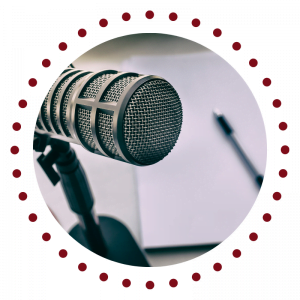
Want to be a Podcast Guest?
Check out our guest qualifications and submit our brief form to be considered.
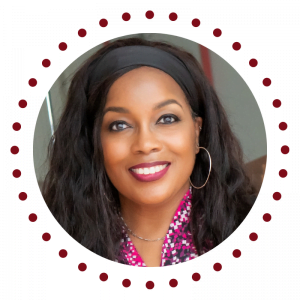
Want Karan to be Your Podcast Guest?
- Blended Workforces & the Gig Economy
- Critical Execution Tactics of High-performing Leaders
- Entrepreneurism & Leading Your Business
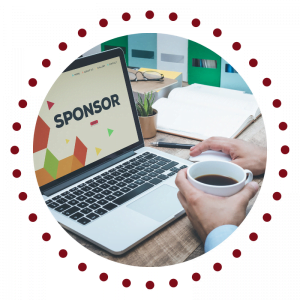
Want to be a Podcast Sponsor?
All sponsorships come with a featured spot on show notes pages.
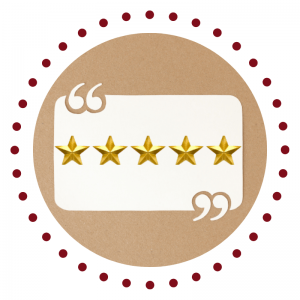
Like the Show? Please Leave a Review
If you like the show, it would mean the world to her if you left a quick review.
Your word is golden, so a HUGE thank you in advance!

#KeepInTouch
via our podcast alerts
Subscribe now to discover why thousands of monthly listeners who are passionate about doing their best work prioritize time each week to listen to the Blended Workforces @Work podcast.
#AboutSDL
#WhereToFindUs
MAILING
4480-H South Cobb Drive
PMB 219
Smyrna, GA 30080
PHYSICAL
2121 NewMarket Parkway
Ste. 108
Marietta, GA 30067
#ContactOptions
Customer Service Email:
service@shockinglydifferent.com
Call or Text:
770-384-1103
#Office Hours
MON-FRI
8:30 AM – 6:30 PM
Weekends By Appointment

